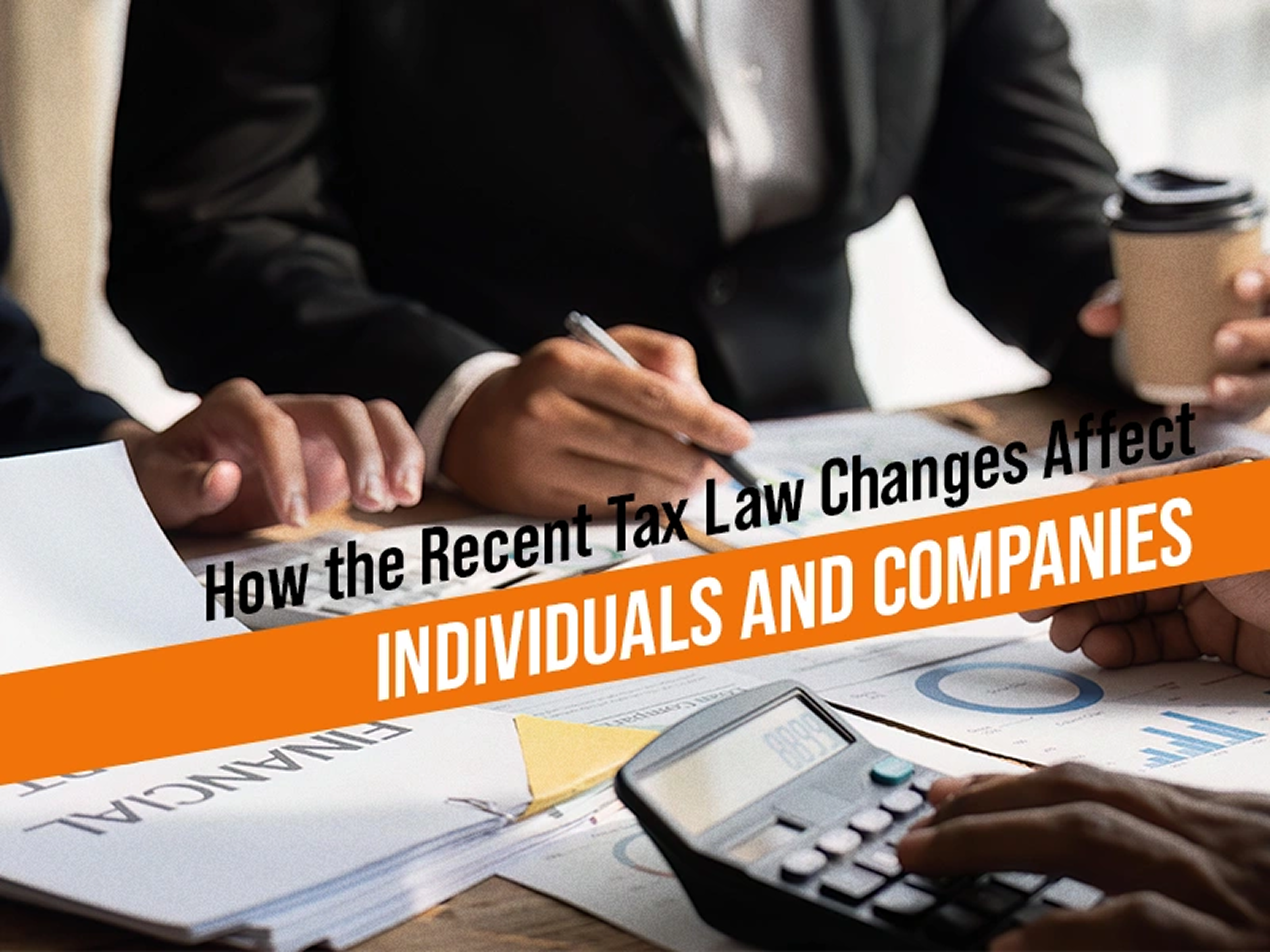
The taxation landscape is evolving rapidly, and the recent changes to tax laws for 2025 have significant implications for both individuals and businesses. With the Republicans taking over the Senate once again and Donald Trump being sworn in as president for a second term, individuals and companies must now brace themselves for a potential slew of tax law changes that are likely to arise shortly. Apart from this, the IRS has already drawn up certain adjustments applicable for 2025. Hence, this year is likely to be a volatile one for tax planning, with both identifiable and as yet obscure changes on the horizon. Getting to know what these changes entail is an essential part of effective financial planning and compliance. Let's take a look at the major changes and how these will impact your taxes this year.
Impact of Tax Law Changes on Individuals and Companies
When we look at the impact of changes in tax laws, we need to consider those that are known and those that are not. The uncertain changes primarily relate to the expiring provisions of the 2017 Tax Cuts and Jobs Act (TCJA);
- Standard deduction
- Caps on state and local tax (salt) deductions
- Individual income tax rates
- Estate tax exemption limits
- Deductions meant for small business owners
Tax practitioners now await legislation on the TCJA by the new Republican government in Washington, DC. Whatever the government decides will likely impact your tax planning for 2026.
Coming to the changes that are already in place for 2025, let's take a look at the major changes that will impact your tax returns for this year.
For Individuals
1. Standard Deduction Increases
The standard deduction has risen to $15,000 for single filers and $30,000 for married couples filing jointly, providing a higher threshold before income becomes taxable. Besides, those who are 65 years old or visually impaired can claim an additional amount of $2,000 for single filers and $1,600 for joint filers as a standard deduction. This adjustment benefits those who do not itemize deductions, particularly in states with lower living costs.
2. Marginal Tax Rates
Adjustments have been made by the IRS to the 2024 tax brackets, with the qualifying income for each of the tax brackets seeing a slight increase. While the tax rates remain unchanged, adjustments to income brackets mean some taxpayers could fall into higher tax brackets due to inflation. For example, the 24% bracket now applies to incomes over $103,350 for single filers, which is higher than the previous thresholds.
3. Earned Income Tax Credit (EITC)
Taxpayers who qualify for earned income tax credit on three or more children have increased to $8,046 for 2025 as compared to $7,830 for 2024. This offers additional support to low-income households.
4. Cost of Living Adjustments
Contributions to health flexible spending accounts have increased to $3,300, for employees as a salary deduction, which is a slight increase of $100 from the 2024 amount. The monthly limit for qualified transportation benefits is now $325—again marginally higher by $10 from the 2024 permissible deduction.
For Companies/Businesses
1. Corporate Tax Adjustments
This year, businesses may face changes in tax liabilities due to adjustments in deductions and credits. For instance, inflation adjustments could impact depreciation schedules and other tax benefits.
2. 401(k) and Retirement Plans
The IRS has announced changes to contribution limits for 401(k) and Roth IRA accounts. This year, the contribution amount to 401(k) plans has been increased to $23,500, which is $500 up from the contribution amount for 2024. Additionally, while the catch-up contribution limit for 2025 for participants who are 50 years and older remains unchanged at $7,500, a higher contribution limit amounting to $11,250 will be permitted for investors aged between 60 and 63 years. Apart from that, the IRS has also raised the income thresholds for Roth IRA contributions.
Potential Policy Shifts Regarding the TCJA
The change in the political landscape is likely to influence tax policy, and individuals and businesses should prepare for potential extensions or modifications to the Tax Cuts and Jobs Act (TCJA), which could alter tax rates and deductions for the following year. While a major part of the provisions of the TCJA will expire at the end of 2025, the general belief is that Republicans will favor extending the expiring provisions with policy proposals aimed at extending the qualified business income deduction, reducing corporate income tax, extending individual tax rates, reinstating bonus depreciation, and so on. Hence, you must keep a close watch on government policy moves to know which way the wind blows regarding the TCJA.
As the tax landscape continues to evolve, consulting with tax professionals and staying updated on IRS announcements are essential. By understanding and adapting to these changes, individuals and companies can navigate the complexities of taxation with confidence.
FinloTax: Helping You Stay Ahead of Tax Law Changes in CA
Understanding the latest tax law changes can be overwhelming, but you don't have to navigate them alone. At FinloTax, we specialize in helping individuals and businesses adapt to new tax regulations seamlessly, ensuring compliance and maximizing tax savings. Let our expert team guide you through the choppy waters of tax policy so you can focus on achieving your financial goals with confidence.
Don't let tax law changes catch you off guard—partner with FinloTax today by getting in touch with us at 4088229406!

